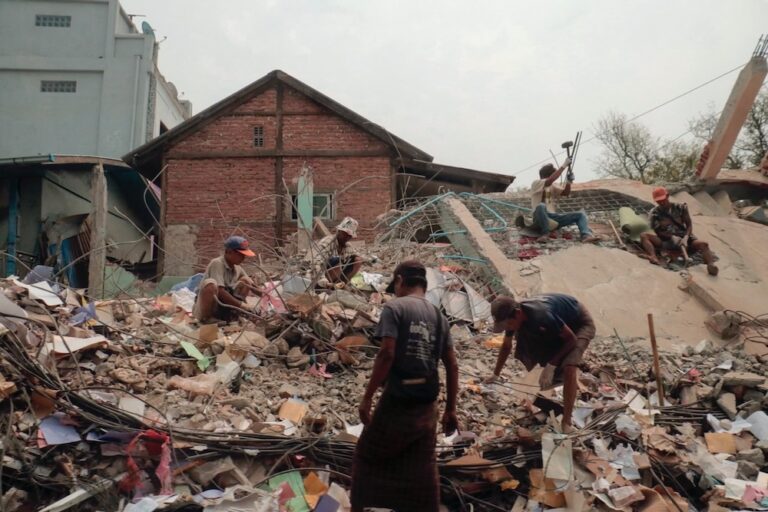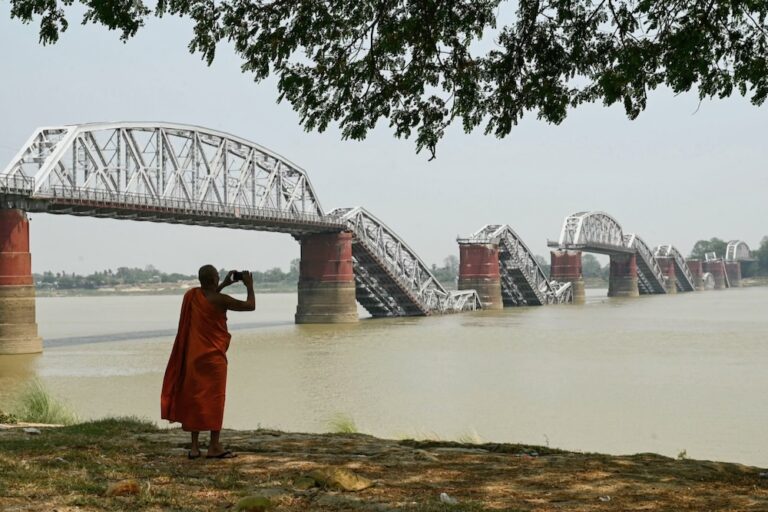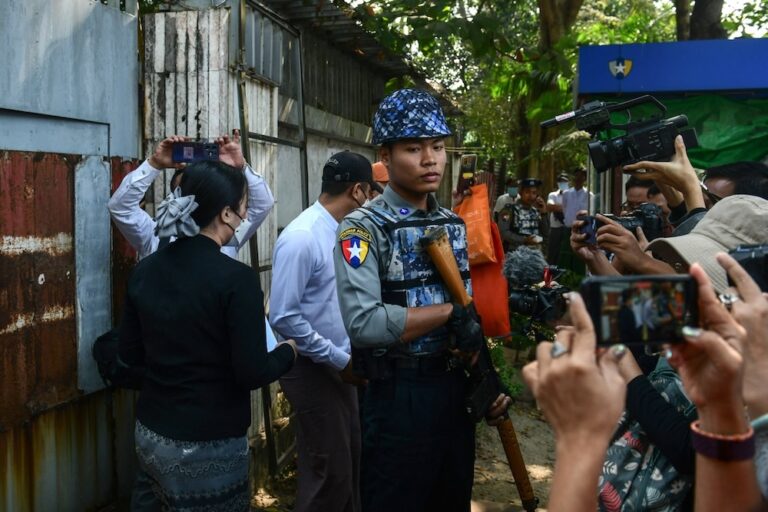(Mizzima/IFEX) – The following is a 24 April 2007 statement from Mizzima News, an interim member of IFEX: Junta detains seven citizens for protesting economic hardship Seven people have been arrested by the Burmese military authorities in Rangoon for protesting against the prevailing economic hardship and frequent power blackouts in the country. On the morning […]
(Mizzima/IFEX) – The following is a 24 April 2007 statement from Mizzima News, an interim member of IFEX:
Junta detains seven citizens for protesting economic hardship
Seven people have been arrested by the Burmese military authorities in Rangoon for protesting against the prevailing economic hardship and frequent power blackouts in the country.
On the morning of 22 April 2007, about 10 people gathered near the Sanpya Market in Thingangyun Township with placards and banners. They demanded 24-hour electricity supply, the lowering of prices of essential commodities, better healthcare and education, and even wished good health to military chief Sr. Gen Than Shwe, who was in Singapore for a medical check-up in January.
According to eyewitnesses, 10 minutes into the protest, Rangoon police and the junta-backed Union Solidarity and Development Association members broke up the rally and arrested seven of the protesters: Htin Kyaw, Thein Aung Myint, Thein Myint Tun, Lay Lwin, Myint Sein, Than Zaw Myint, and Tin Maung Kyi.
A police sergeant, Zaw Khin, was said to have taken Htin Kyaw and Phoe Thoke to a nearby rice stall and severely beaten them.
Said a member of 88 Generation, a movement of students active during the 1988 pro-democracy uprising: “As far as we can guess, they (the protesters) are being kept in one of the interrogation centres. But we are not sure where exactly. We are still trying to communicate with them.”
This is the second arrest for Htin Kyaw, 44, who led a protest with similar demands on 22 February in downtown Rangoon. It was the first public show of dissent in a decade against the repressive military regime. Sixteen protesters were arrested and later released.
As the media in Burma is under full control of the junta, citizens have no choice but to stage protests to make themselves heard on matters that are censored by the authoritarian regime, which include democracy, imprisoned political leader Aung San Suu Kyi, criticisms of the junta and the current economic crisis in the country.
In March, a 65-year-old retiree posted on his fence a satirical article he had written to protest the media propaganda denying the true state of the economy. He was arrested and charged with incitement to public disorder, but acquitted a month later.


